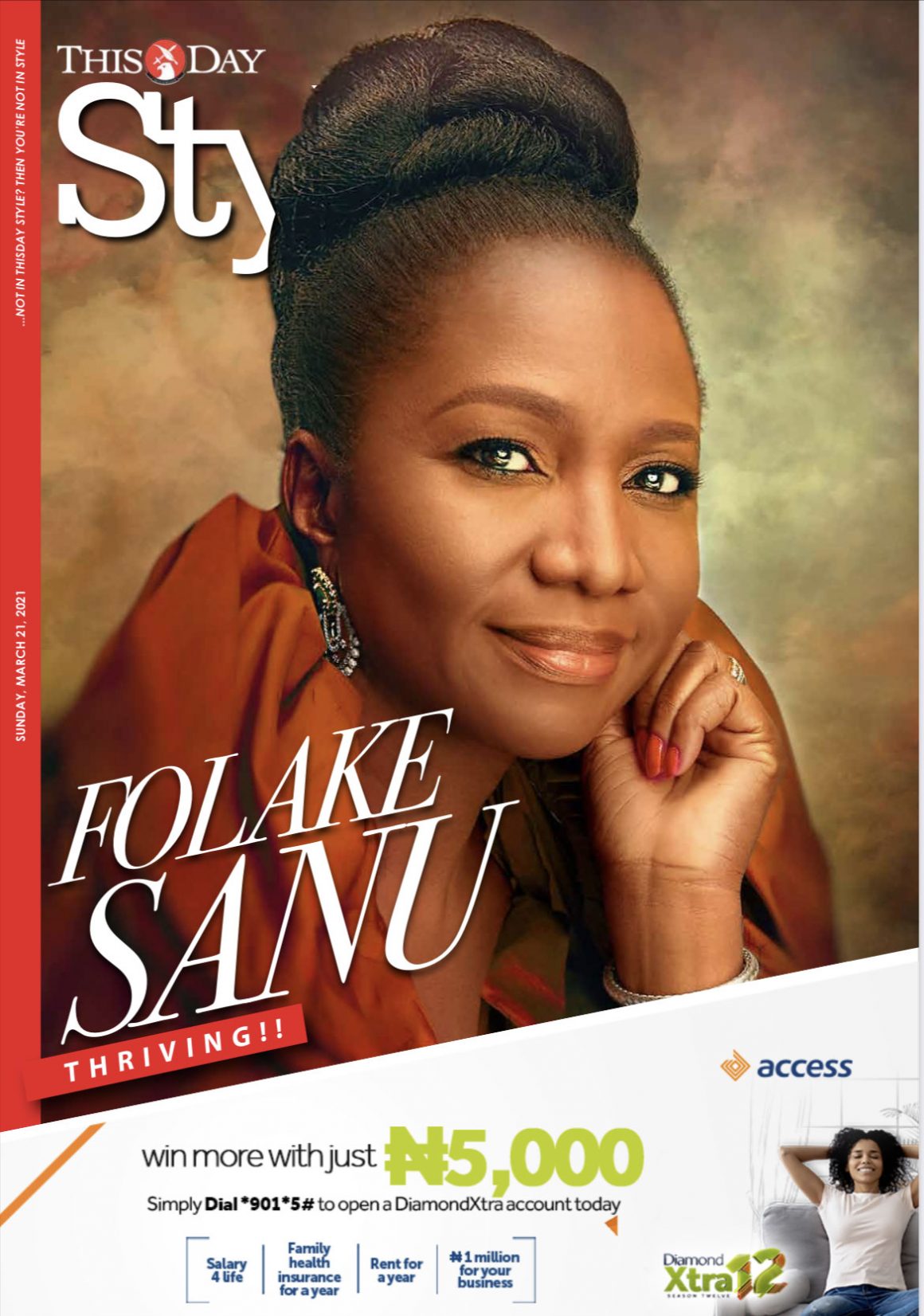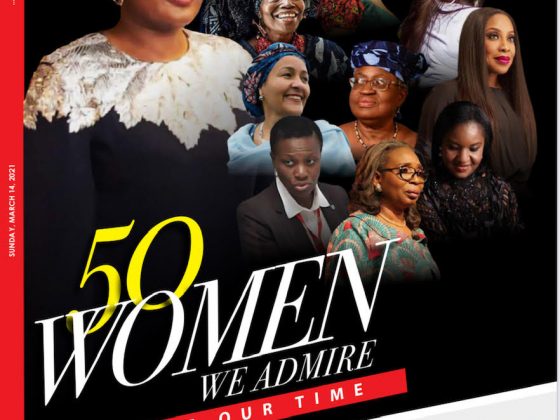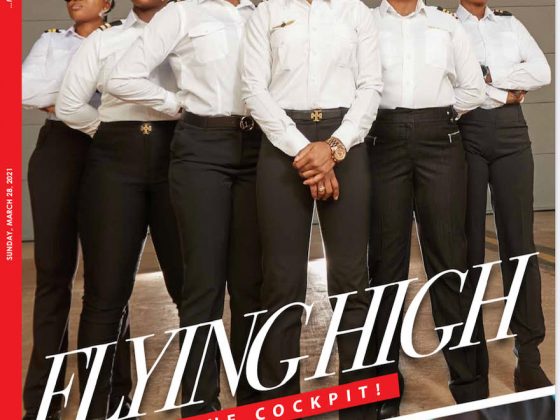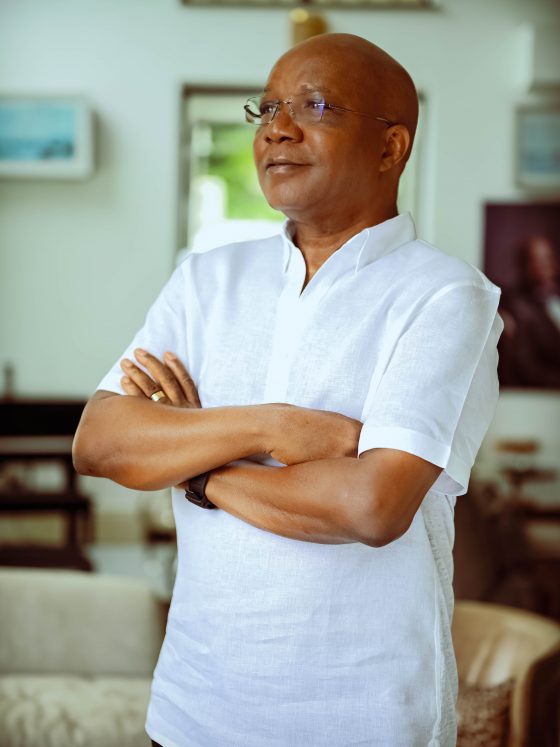Thriving !!!
“I truly believe that you have left a legacy when you have produced competent successors and individuals who can hold their own in every situation”.
This is one of the key takeaways in this interview with Folake Sanu as she shares her stance on mentorship and the need to empower women in the workplace.
An astute finance professional and banker of repute, Folake started her career in Peat Marwick Ani Ogunde & Co (now KPMG) as an accountant trainee. From there, she worked her way up to the top at Wema Bank, where she currently holds sway as Executive Director. A journey that took her over thirty-eight years. It is also worthy of note to mention that within this time, she was Chief Financial Officer and later, Chief Compliance Officer of Sterling Bank, where she was instrumental in the successful merger of 5 different banks to form Sterling Bank plc.
Regardless of all she’s achieved, what’s most important to Folake is using her position as a platform to help tackle gender inequality and inequity, as is seen in her book, Life Lessons from a Nigerian Wonder Women. For her, ”when a woman succeeds, we all succeed” is not just a saying but her truth.
In this interview, she speaks to Konye Chelsea Nwabogor on this, her personal gender-related challenge and her vision for the banking industry.
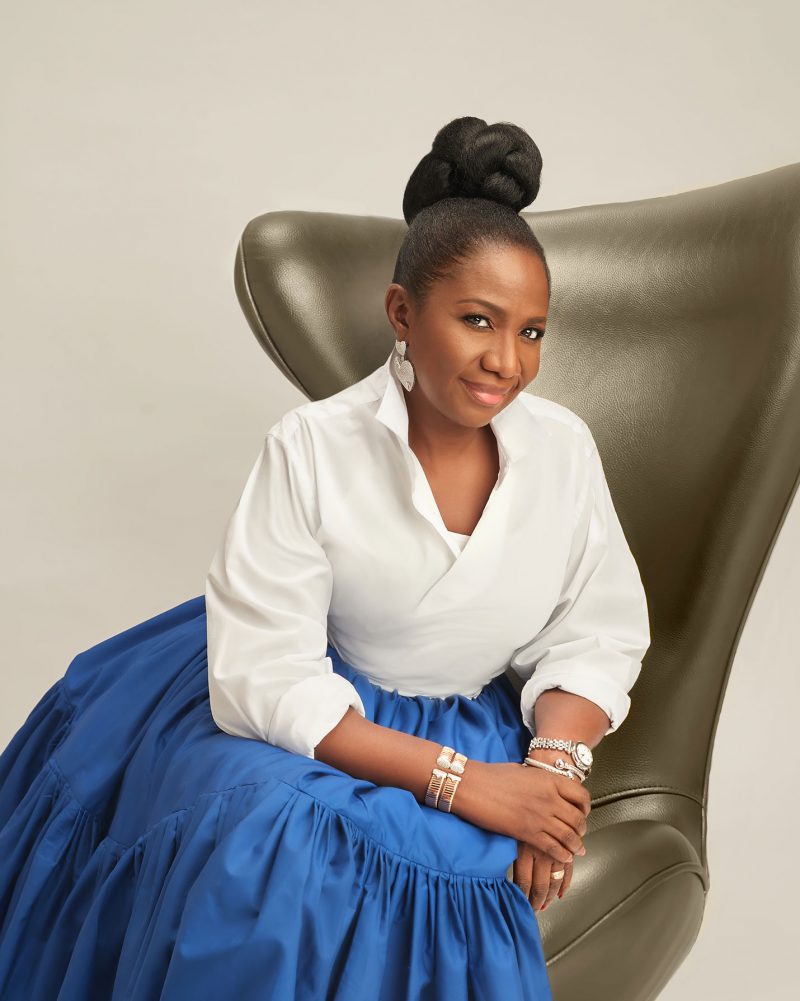
You’ve held quite a few high-profile roles in your career trajectory. What was the path that led you to your current position at Wema Bank? Tell me a bit about your journey to the top?
My professional career spans over thirty-eight years; approximately ten years as an accounting practitioner, twenty-six years as a banker and two years in private practice. I started as an accountant trainee in PMAO, where I built most of my early work experience. I then moved on to become Head of Internal Audit at then Magnum Bank, which then merged into now Sterling Bank, at which I became Head of Operations. I delved into private practice in Consulting until I got the Wema Bank offer, at which I transitioned into my Executive Director role.
On this journey, I have passed through the ranks of four commercial banks under the leadership of diverse management teams, experienced several buy-overs, as well as a significant merger.
It has indeed been a journey, and I am grateful for every moment of it.
Are there any key moments you believe prepared you for what you do now?
My life is just a series of moments laden with choices, decisions, experiences and encounters. These moments, each pregnant with repercussions, have created the picture people see today.
My time at Peat Marwick was one of such. My experience at one of the top accounting firms back then afforded me many opportunities to interact with people in middle and top-level management quite early in my career. Within a year or two, I had begun to think like middle and senior managers. This undoubtedly prepared me for management roles I stepped into much later.
For a woman in your position, you probably would have encountered some gender-related challenges. Can you share some of such incidents with us?
I once had an experience with an old colleague who acted very aggressively and disrespectfully towards me at the workplace. Whenever we went for meetings, he would make it his duty to shut me up. I would watch as every other person got a chance to make their comments while he shut me up at every opportunity. It took a one-on-one confrontation with him to stop this pattern and establish mutual respect- some people might call that shock therapy.
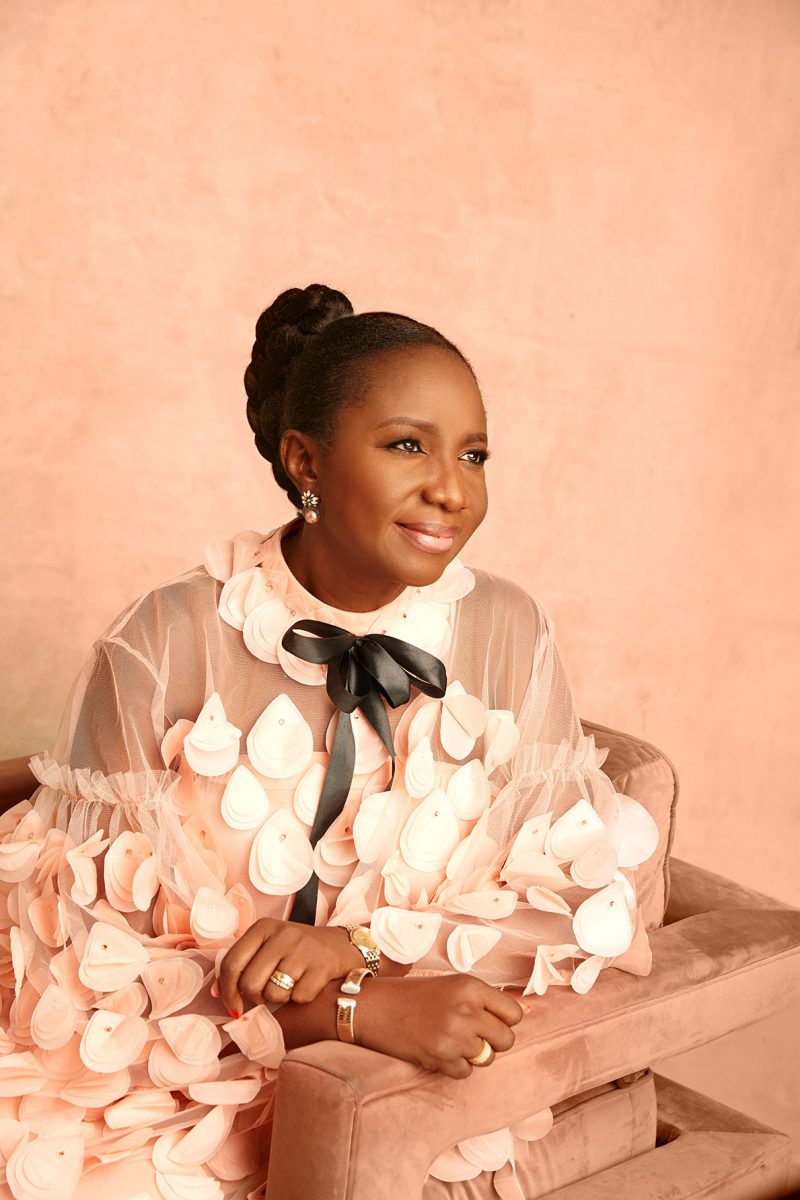
Speaking about gender, it’s that time of the year when we celebrate women. What does the chosen theme #choose to challenge mean to you?
For me, #ChoosetoChallenge means that women no longer need to shrink into the background of the boardrooms and society’s decision tables. We must challenge the status quo and speak up and showcase how great we are wherever we find ourselves. A woman’s presence must be felt everywhere she goes, in the workplace.
Around the world, conversations are being held about gender inequality and inequity. How do you think we can make sustainable progress with regards to this?
I share extensively on this conversation in my recently published book, Life Lessons from a Nigerian Wonder Women. I believe that for proper progress to be made, organizations must put in place structures to ensure that women are appraised purely by their performance and not their gender. Women must also ensure they contribute actively and not give excuses when putting in the work.
So far, we’ve seen tremendous advances on the topic, but we’ve also seen limitations. As you look out at the next decade or so, where do you see this going? Are you hopeful? Are you skeptical? What do you think is going to happen, or what will drive change?
I am hopeful because I believe society now realizes that they cannot overlook the role of women and the contributions they bring to the table. Women are powerful forces, and if given the right environment, they will thrive and cause significant changes. Also, as more women take their stand in the different helms of affairs in society, others will be inspired to do the same, leading to a cycle of change.
Where does Wema bank stand on this? Are they any products or programs designed within the Bank to empower its female staff and customers?
Wema Bank has put in place certain structures and initiatives to ensure that women are fully represented and have equal opportunities for empowerment. The Sara community is one of these and is a proposition for female customers of the Bank that provides mentorship & capacity building programs, networking opportunities, and access to concessionary loans to women at different stages of their lives.
The Bank also has major female representation on its Board of Directors, with four women currently on the board.
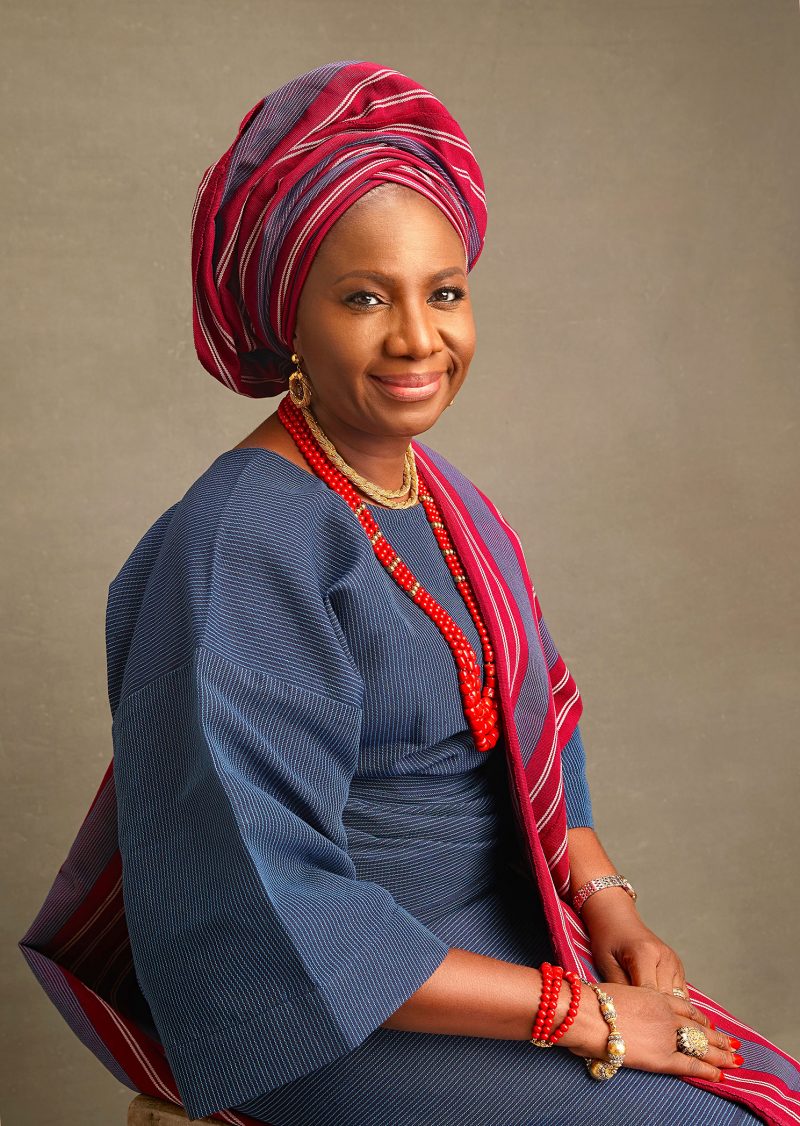
Generally speaking, how do you think an organization can foster a work environment that is conducive enough for a woman to thrive to her maximum potential?
Organizations have a crucial role to play in ensuring that their female employees’ growth is not stifled, and their company structures, policies and leadership should reflect this. Mentorship also plays a crucial role in this regard, as younger women need guidance on how they can successfully navigate the different areas of their lives and still impact society. This is one of the things we have brought to life at Wema Bank through the Wema Women Network (WWN). The network serves as an internal network for female staff to help them increase visibility, participation, career skills, personal development, and knowledge in business and finance so that they can become well-rounded women. Such initiatives create a conducive environment for female employees to reach their full potential.
Looking back to when you started working as a young lady, how has the position of women in the workforce changed?
When I started, there were not as many opportunities for women in the workplace as there are now. Back then, it was common to be taken less seriously or ignored simply because you were a woman. In fact, I recall various instances from my first few years at work where there would be delays or cold responses to certain projects with clients because I was a woman and a petite one at that.
The workplace has evolved beyond that, and more opportunities are now available to women to attain whatever heights they want to in the present day, and I believe more can still be done in this regard.
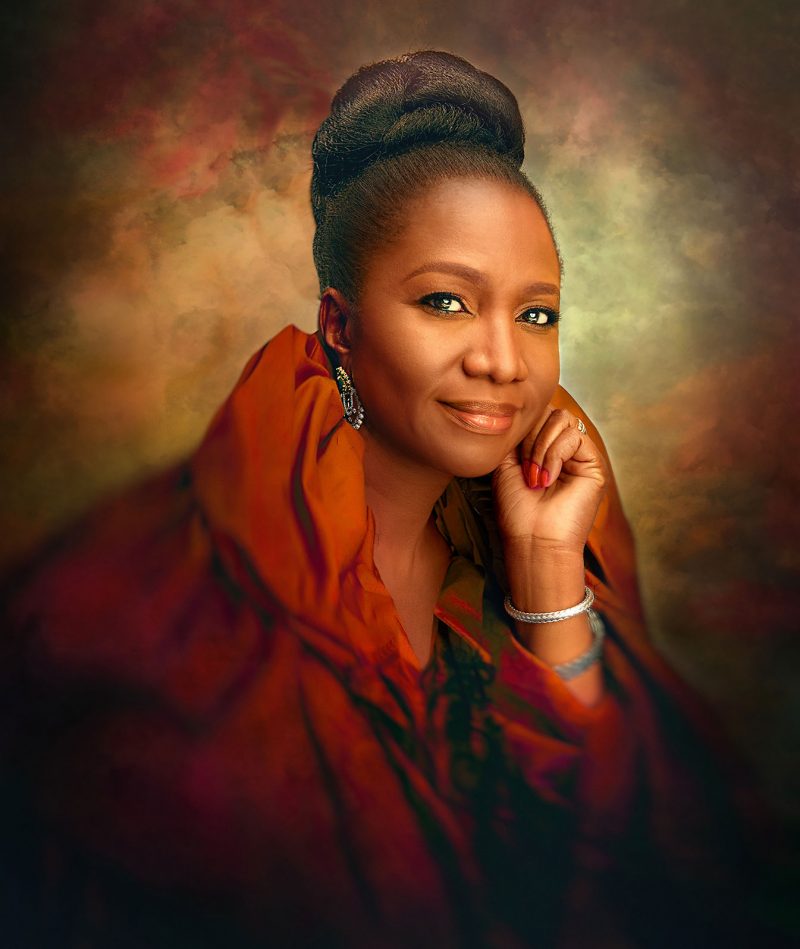
You are one of the female leaders in your Industry. What’s it like being in an industry that is arguably male-dominated at the top?
It has made me become quite tough and resilient. Being a woman at the top means that you represent and pave the way for other women coming behind you, and so you must put that into consideration in all that you do and say.
So, what do you do to support? Do you take out time to mentor?
I believe strongly in women supporting women, and in every facet of my life and career, I have upheld this mantra. I enjoy mentoring, especially my subordinates in the line of work. I try to guide them on what to do and allow room for them to apply their initiative as they work. Alongside this, I give constructive feedback and make recommendations where necessary. I truly believe that you have left a legacy when you have produced competent successors and individuals who can hold their own in every situation. We must all fulfil our God-given purpose.
As regards career growth and the idea of a work-life balance, What would be your advice to young women?
People have a lot to say about work-life balance, and I’m not too sure whether one can really have a hundred per cent work-life balance. For me, it is something you have to keep working on, even though it comes with certain sacrifices and the need to put in certain structures and support for the different areas of your life.
In the end, every woman should know that she can be who she wants to be. We can enjoy all the aspects of life ― family, leisure, social obligations, etc. ― and still, be successful at work. While I know that there is no such thing as a perfect life, I believe that every career woman can live a balanced life of some sort.
What’s your vision for the banking industry in Nigeria, and what do you want to see happening?
My vision for the Industry is to see it evolve beyond the old ways of doing things and create solutions that help and support the people’s aspirations. I want to see the Nigerian banking industry move with the times and take advantage of all the digital possibilities available to achieve more and serve our customers more effectively. I would love to see us embrace technology to provide more straightforward solutions that work.
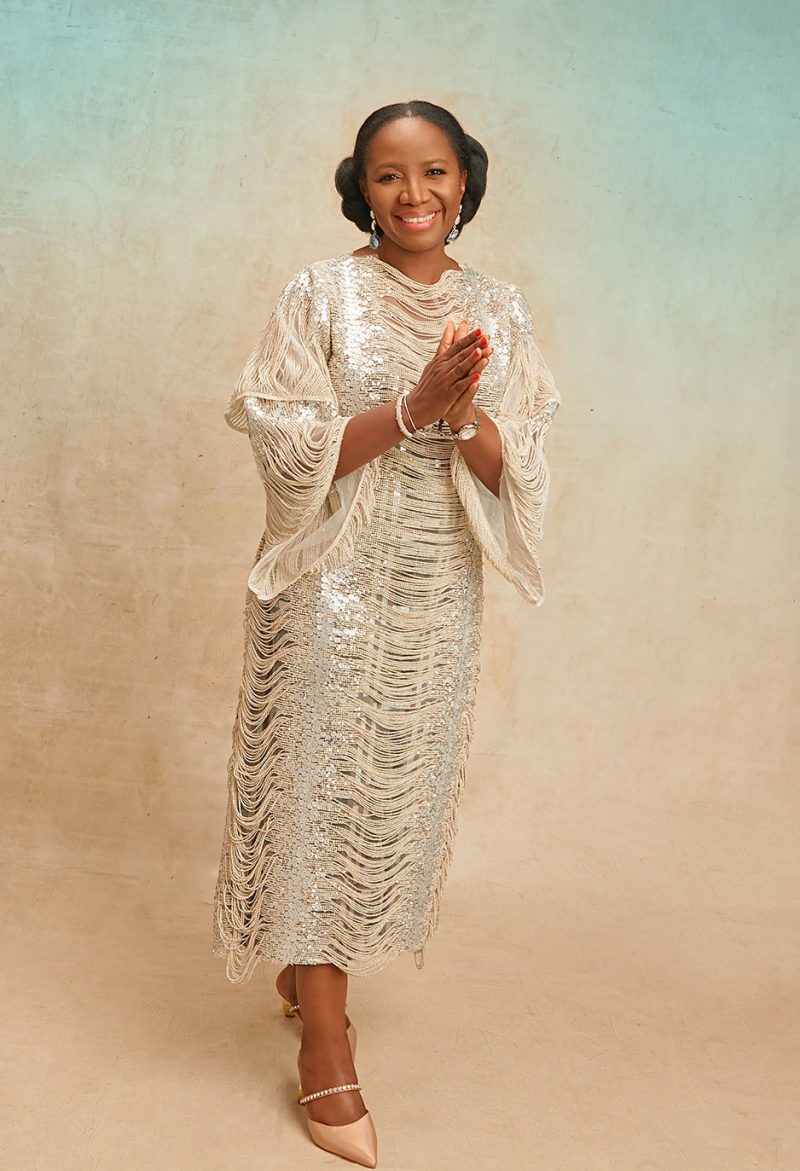
What drives you in life to keep pushing boundaries?
I am driven by a desire to make a difference by delivering excellence and adding value in all that I do whilst ensuring that I inspire everyone around me.
Finally, we were wondering, are there women to whom you have turned to for advice or guidance, and what is the best piece of advice you have ever received that helped your career in your assessment?
Yes, there are. Firstly, my mother, because she is wise beyond her years and has been able to guide me all these years. My very good friend Sade Adebayo has been a trusted confidante over the years, right from our days at Magnum Trust Bank. I also have my female mentors, which include former Chairman of Access Bank Plc, Mosun Belo-Osagie, who wrote the foreword of my recently published book. I will sum up all the advice in one quote – wherever you find yourself, keep delivering value, keep being an asset.

